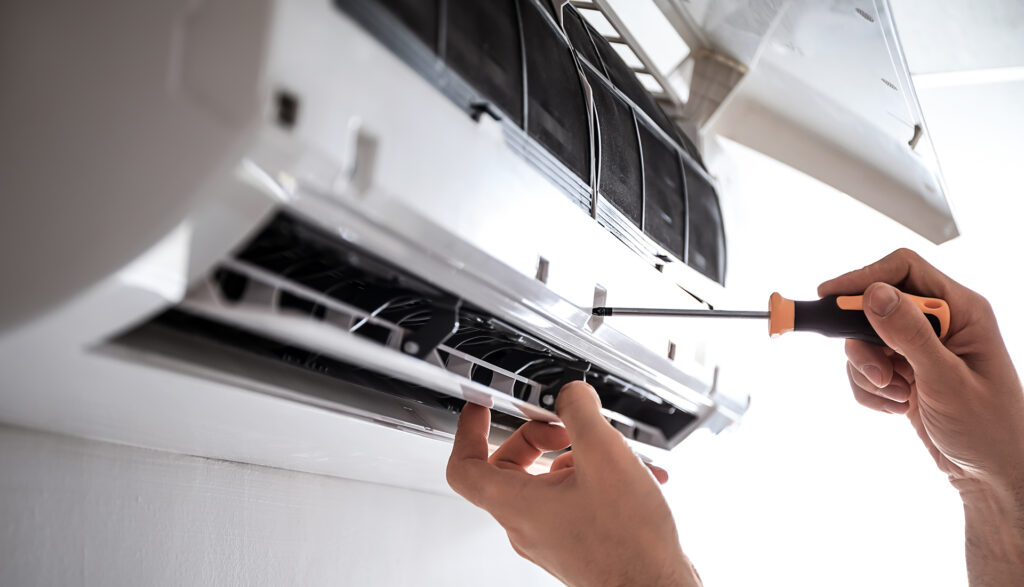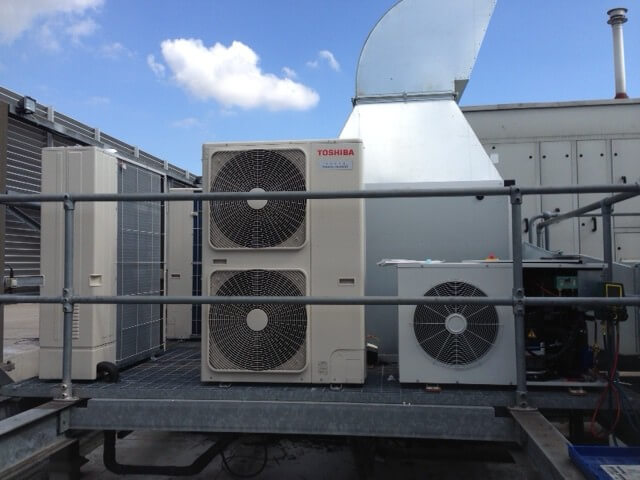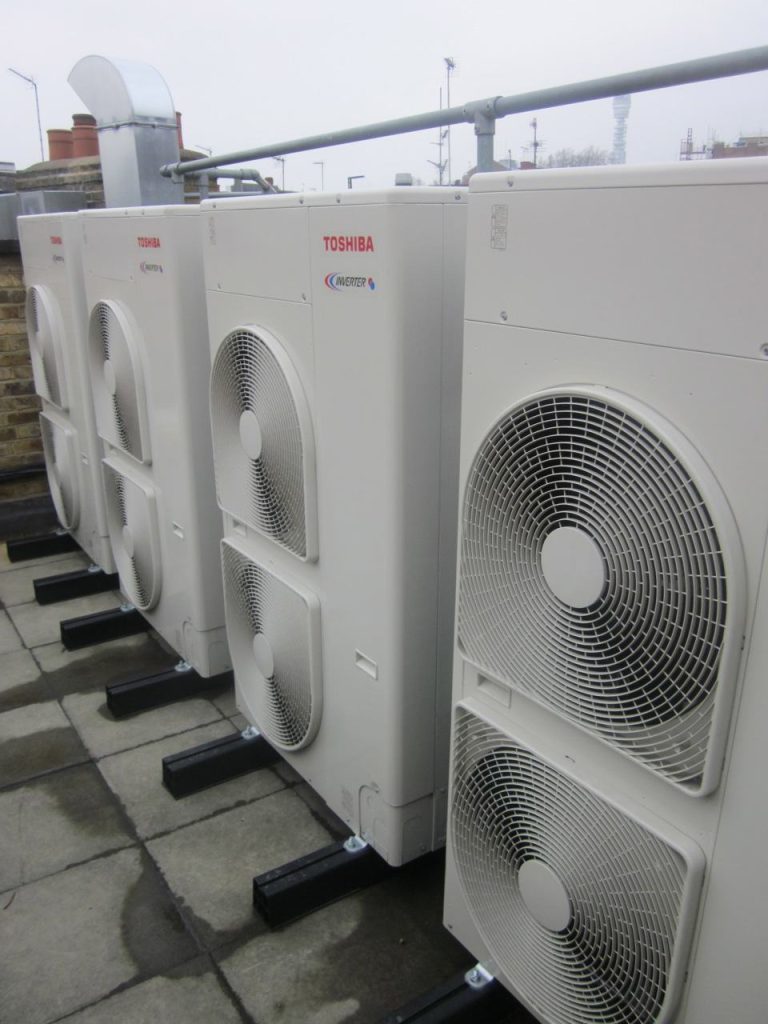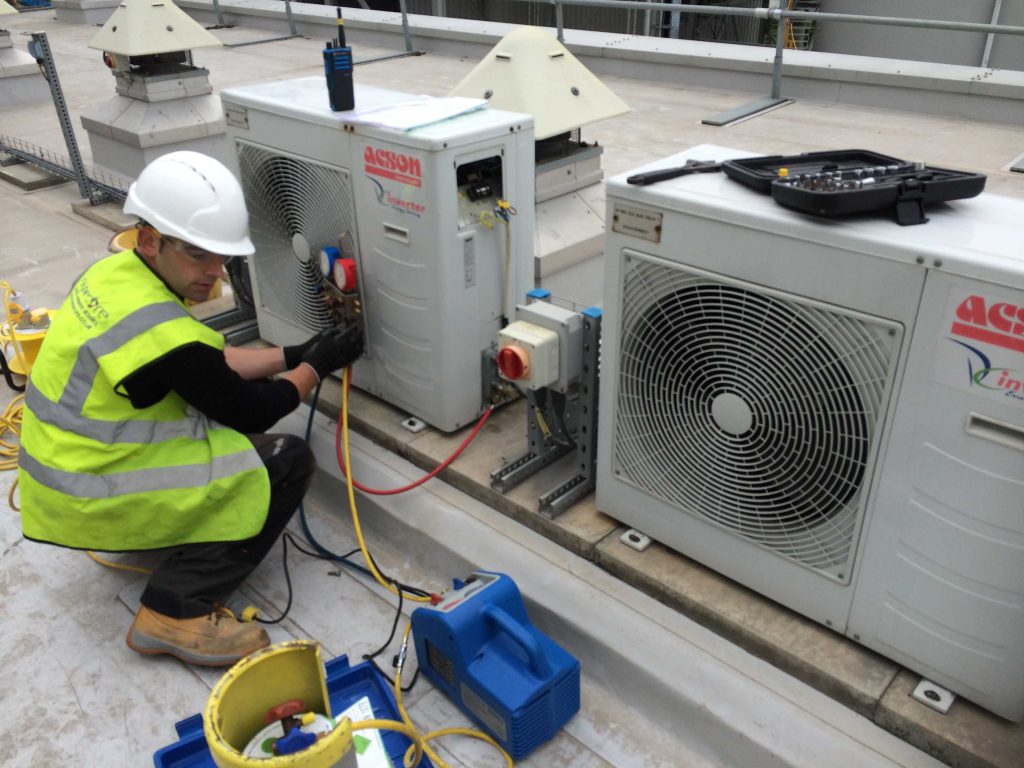Prevention Is Better Than Cure – Air Conditioning Maintenance
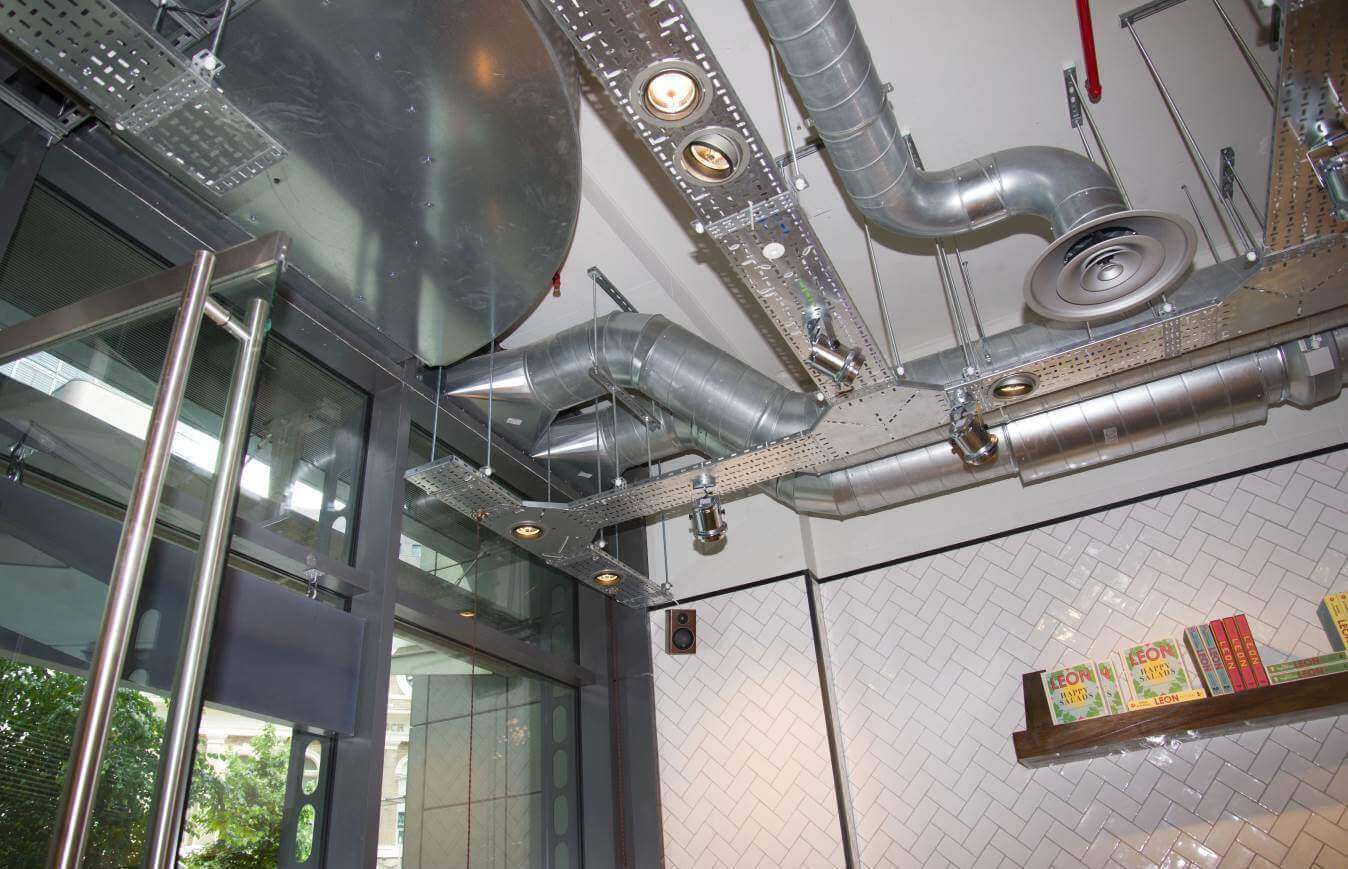
Estimated reading time 11 minutes
The phrase “Prevention is better than cure” was first coined by the Dutch philosopher Desiderius Erasmus, and is now widely used today. In essence it means “It’s better to stop something bad from happening than it is to deal with it after it has happened”. This is especially true when it comes to air conditioning. Given the damage that can result from air conditioning that’s not maintained it’s far better to have regular air conditioning maintenance to ensure your air conditioning system is checked and any issues resolved before they become major problems and before they potentially end up costing you a great deal of money.
So why should you be concerned about maintaining your air conditioning system? What can happen if you don’t have regular maintenance?
Consequences of Badly Maintained Air Conditioning
An example of the consequences of not maintaining your air conditioning system are described on the Health and Safety Executive (HSE) website which highlights the death of an electrical contractor who was killed while examining a faulty air conditioning system.
The HSE reported “The electrical contractor received a fatal electric shock whilst examining a faulty air conditioning unit at premises owned and controlled by a Metropolitan Borough Council. The HSE investigated and found that the Council had failed to maintain the air conditioning unit in a safe condition, despite having had knowledge of its condition for some time. Also, this was the second electrocution on premises under control of the council in 5 years.”
The Metropolitan Borough Council were prosecuted under the Health and Safety At Work etc. Act 1974, Section 2, Sub Section 1, and the Health and Safety At Work etc. Act 1974, Section 3, Sub Section 1 and fined £400,000.
The HSE went onto comment “Those in control of work activities have a responsibility to maintain equipment in such a state that it is safe. They should also provide such information and instruction as is necessary to ensure that workers are able to work safely.”
Although we don’t hear very much in the press about the importance of air conditioning maintenance or hear about incidents involving poorly maintained air conditioning the report above should give all owners of premises which run air conditioning pause for thought.
Air Conditioning Maintenance – Dangers of Not Maintaining Your System
We’ve written about this before but it’s worth reviewing it again. The dangers associated with not maintaining your air conditioning system are many. When your air conditioning system is left without regular checkups you run the risk of any of the following problems occurring:
Safety Concerns
Injury or death
As in the HSE example above, continuing to run your air conditioning system without maintenance can result in people being injured or worse still causing their death. Air conditioning systems are complex and need to be looked after by an expert electrical engineer.
Legionella
According to the HSE “if your workplace has been closed for an extended period and has air conditioning units that have a source of water that can generate an aerosol then there is a risk of Legionella being in the air conditioning system.”
Legionella is quite common but is usually in such small numbers that it’s harmless. However, when it finds its way into an unattended air conditioning system it can multiply. When the air conditioning system is turned back on droplets of water contaminated with Legionalla may then be circulated by the air conditioning causing the spread of the disease throughout a workplace. Legionnaire’s disease is fatal in 10-15% of cases.
The HSE go onto say that “Small wall or ceiling-mounted units with closed cooling systems should not present a risk. Larger units may present a risk if they have improperly drained condensate trays, or humidifier or evaporative cooling sections where water can stagnate, becoming a reservoir for bacteria to grow.” It’s therefore important to decide if there is a risk of Legionalla being present in your system and if it needs to be cleaned before you turn it back on.
Refrigerants
Air conditioning systems use refrigerants. If you suspect you air conditioning unit is leaking refrigerant or your leak detection system detects a leak (leakage detection systems must be installed on applications with 500 tonnes or more of F-gases) it’s important to contact your air conditioning company as soon as possible as refrigerant can be dangerous if the leaking refrigerant evaporates and becomes a gas. If the gas escapes into the atmosphere it can be hazardous to health as well as being detrimental to the environment.
There are some common signs when an air conditioning system is leaking refrigerant. These include:
- a reduction in the ability of the air con to keep a room cool. It’s the refrigerant’s job to absorb heat so when refrigerant is low it’s “cooling power” is diminished.
- if the coils are frozen this is usually a clear sign that refrigerant levels are lower than they should be.
- you may hear a hissing, bubbling or gurgling sound as refrigerant leaks from the system.
- energy bills may be higher than normal as the system fights to maintain the set temperature.
You may see some or all of the signs above if refrigerant is escaping the system.
Higher Risk of Breakdowns / Downtime
Clearly if you're not maintaining your air conditioning system there is an increased risk of it breaking down. Just like with any other complex piece of equipment a breakdown may not be solved by simply replacing a part or cleaning out debris from the system. A breakdown can result in one part of the machinery breaking which in turn may affect other parts of the equipment which in turn can lead to catastrophic failure and large maintenance bills.
When your air conditioning system breaks down there is the resultant downtime. If this happens at the warmest or coldest parts of the year then you may swelter or freeze while waiting for your air con on to be repaired. If this happens in a hotel or restaurant you are likely to find your customers won’t be happy (see poor customer experience below).
By having regular maintenance through a planned preventative maintenance contract you are far more likely to “catch” a problem early on and be able to rectify the issue before it becomes a major problem.
Pollution and Contaminants
If your air conditioning system is not maintained there can be a build up of pollutants, dust, dirt, mould, viruses and other contaminants in the system. These irritants can be carried by the circulating air which can lead to or exacerbate already present health issues including asthma, hay fever and sinusitis.
According to Allergy UK a staggering 44% of British adults now suffer from at least one allergy and the number of sufferers is on the rise, growing by around 2 million between 2008 and 2009 alone. Almost half (48%) of sufferers have more than one allergy (Mintel, 2010). Many of those allergies come from airborne particles such as dust, pollen and mould spores which can lead to severe allergic reactions.
As long as an air conditioner is properly taken care of, filters are cleaned or replaced as required and the system is well maintained then your air conditioner will filter out particulates, dust and germs and provide you with clean air.
Strange Smells / Burning / Electrical / Musty, Mouldy Odour
A variety of strange smells can come from your air conditioning when there are issues or problems brewing. These include:
- a burning or electrical smell which is usually caused by wiring issues, electrical component failure, a short circuit, an overheating motor or some other mechanical issue.
- a mouldy or musty smell can occur if the condensation within the unit doesn’t drain away leading to an excess of moisture which can end up in the ducts creating a build up of mould.
- a dirty socks odour can be the result of dirty evaporator coils or a clogged condensate drain pan.
Many of these smells result from poor maintenance of an air conditioning system which causes dust and dirt build up leading to clogged filters, poor drainage and electrical failure. Ensuring your air con is regularly serviced can prevent the problems described above.
Drainage Problems
With warm weather your air conditioning has to work harder to keep your building cool. As the demand on the air conditioning increases so does the demand on the condensate system which is responsible for draining away any condensation or excess moisture generated by the air conditioning. If your air conditioning isn’t maintained drainage problems can occur leading to a build up of water in the system.
An increase in retained water makes an ideal environment for mould and mildew which thrives in damp spaces. Mould releases spores which will then be circulated by your air conditioning leading to a decrease in indoor air quality and potentially triggering allergies. A build up of water within the system can also cause water damage which may eventually lead to a shutdown of your AC.
Higher Energy Bills
An air conditioning system which is not working at its best will be using more energy trying to control the temperature of your building. Failing parts, refrigerant leaks, dirty filters, older systems, and poor installations are also reasons why you may see higher than normal energy bills.
Taking one of the examples above, when your air conditioning filters aren’t regularly cleaned dirt, dust and debris can begin to build up which leads to a restriction in air flow. Restricted air flow means your system has to work harder to try to maintain the set temperature hence it uses more energy than it normally would resulting in higher costs to keep the system running.
Eventually filters can become so clogged that the system cannot continue leading to the burn out of parts and the breakdown of the equipment.
Poor Customer Experience
If you're the owner of a business be it an office space, hotel, gym or restaurant, maintaining the right temperature in your premises is important to your staff and your customers.
We know that in hotels guests value the ability to control a hotel room’s temperature. Air conditioning plays a vital role in ensuring a guest is comfortable, especially in very cold and very hot weather. Hotels that do not have air conditioning or who have poorly maintained air conditioning have been shown to receive bad reviews. In fact we would go as far as to say that having working air conditioning will make or break a guest’s stay.
Synecore’s HVAC Manager, Gary Piper, says: “It is surprising that so many hotels do not provide good air conditioning as a basic service to their guests. Our research has discovered that the main complaints relating to poor air conditioning in hotels are largely due to under maintained systems that don’t perform efficiently. Shockingly, complaints are often ignored, or a fan is provided as an alternative. In these instances, we firmly believe the negative comments are well deserved.”
Air Conditioning Maintenance
Given the number of issues that can result from poorly maintained air conditioning it’s clearly a worthwhile investment in your air conditioning and building to ensure your system is regularly maintained. A planned preventative maintenance package which takes care of your air conditioning by following a series of checks to ensure that your system is running smoothly year in and year out can save you thousands of pounds.
Gary Piper of Synecore explains “Keeping your air conditioning system well maintained is not difficult, especially with Planned Preventative Maintenance Schemes, such as ours, where the air conditioning system is regularly serviced, cleaned, checked for leaks and tested. Most importantly these under-maintained systems could be a sign the hotel is not fulfilling its legal obligations of remaining FGas compliant and they possibly do not hold an up-to-date TM44 assessment.
“Large air conditioning systems, often found in hotels, must be regularly leak tested to prevent the release of harmful ozone depleting gases being released into the atmosphere. A poor performing system could be a sign of a leak and it must be rectified immediately, or the hotel could receive significant penalty fines if not addressed.”
Synecore
Synecore operates throughout Kent, London and the UK providing professional air conditioning maintenance, offering air conditioning and commercial refrigeration systems Planned Preventative Maintenance (PPM) packages. Each of Synecore’s PPM packages are designed to meet the needs of individual businesses and to ensure full F-Gas compliance.
To find out how Synecore can help your business, get in touch with our head office in Sittingbourne, Kent to discuss your requirements and arrange your free no obligation quotation at your convenience. Call us on 01795 509509, get in touch via our contact form or chat with us via our chat form.
